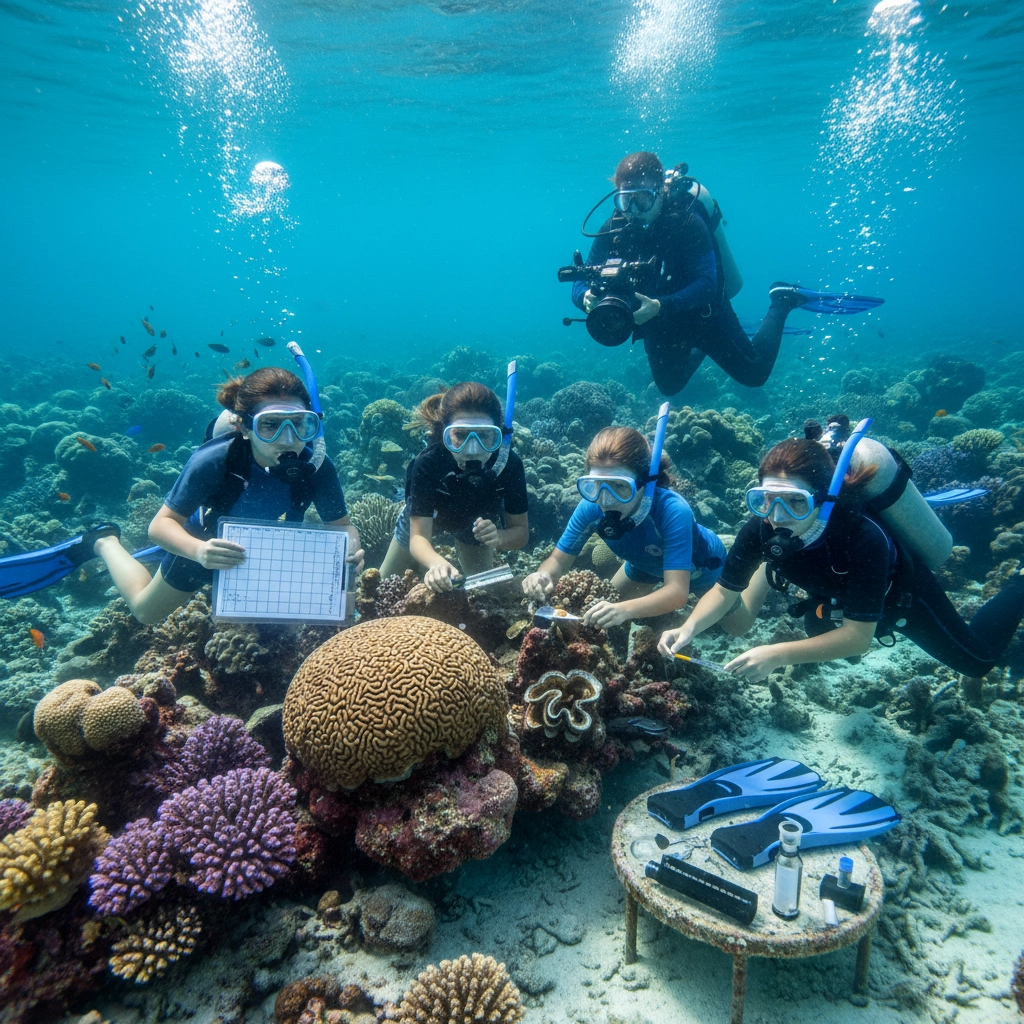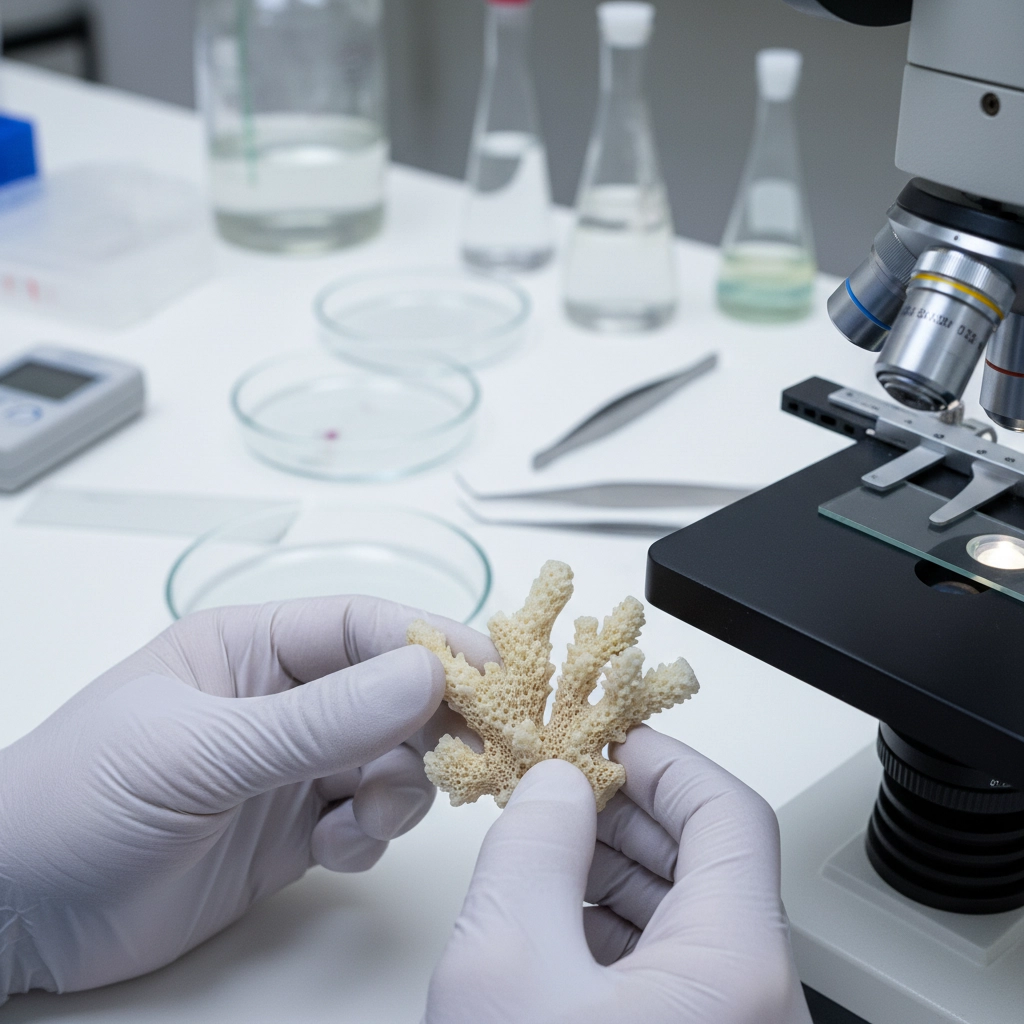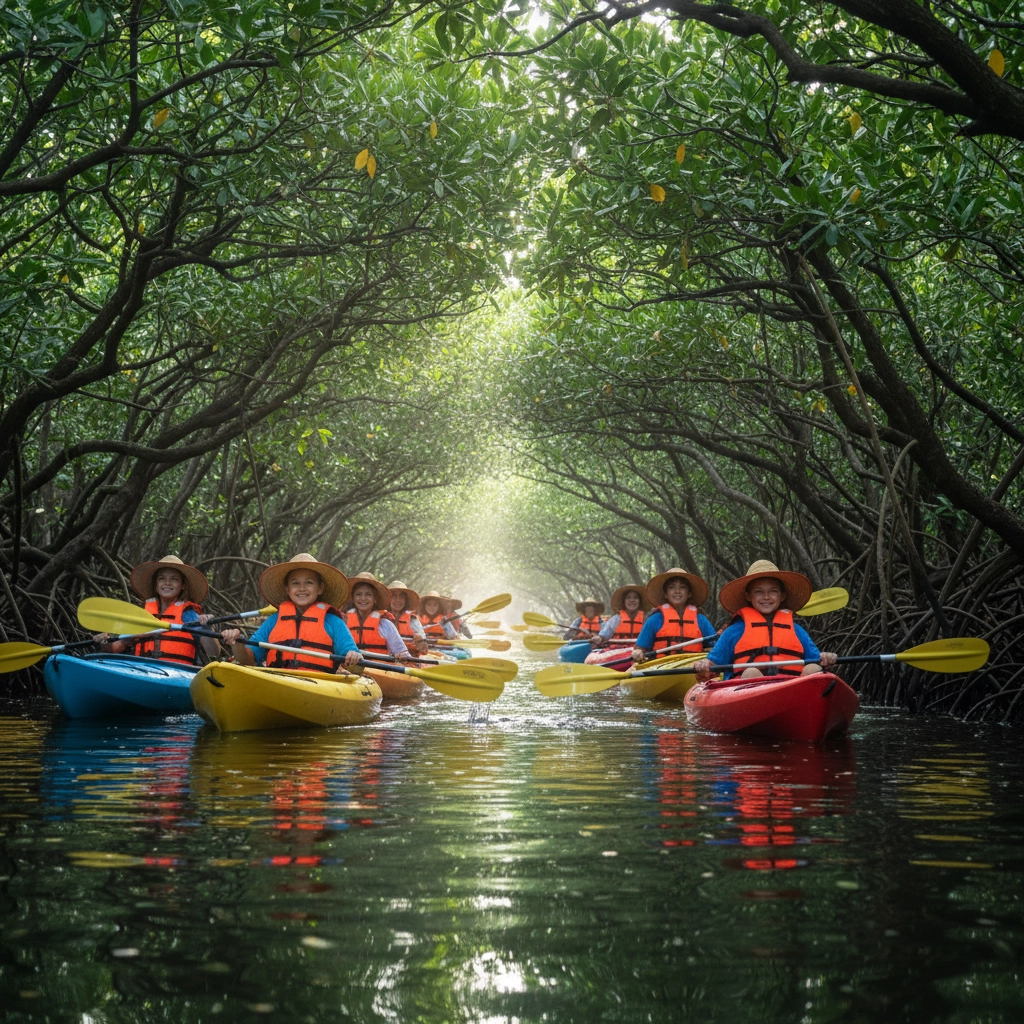Stop Boring Field Trips: 10 Ways Florida Keys Marine Science Expeditions Make Middle Schoolers Fall in Love with Science
- Caleb Mullenix
- Nov 2, 2025
- 5 min read
Traditional field trips often fall flat, leaving students disengaged and teachers frustrated with wasted educational opportunities. However, Florida Keys marine science expeditions transform this dynamic entirely, creating authentic learning experiences that ignite genuine passion for scientific discovery. These carefully designed programs replace passive observation with active investigation, turning middle schoolers into confident young scientists.
1. Transform Students into Active Marine Researchers Through Structured Investigation
Rather than simply observing marine life, students engage in legitimate scientific research using professional protocols and data collection methods. Each expedition provides waterproof data sheets, underwater writing tools, and standardized observation procedures that mirror real marine science fieldwork.
Students conduct coral species identification, measure fish populations within designated quadrats, and document reef health indicators using the same methods employed by professional marine biologists. This approach transforms snorkeling from recreational activity into genuine scientific investigation, giving students ownership over their discoveries and fostering deep engagement with the scientific process.
2. Build Essential Foundation Knowledge Through Pre-Trip Classroom Curriculum
Successful marine science expeditions begin weeks before students enter the water, establishing crucial background knowledge through four comprehensive instructional modules specifically designed for middle school comprehension levels. These modules cover coral biology fundamentals, reef ecosystem interactions, environmental threats, and coral restoration science.
By arriving with solid foundational understanding, students can immediately recognize and analyze what they observe underwater. Rather than feeling overwhelmed by unfamiliar species and complex ecosystems, they approach their field experience with confidence and contextual framework that makes every observation meaningful.

3. Provide Hands-On Laboratory Experiences That Connect to Field Observations
Students examine actual coral skeletal samples under microscopes, observe symbiotic zooxanthellae algae, and compare healthy versus diseased coral specimens in controlled laboratory settings. These tactile experiences create crucial connections between abstract biological concepts and living ecosystems they will encounter during underwater explorations.
Laboratory work includes water chemistry analysis, specimen identification exercises, and microscopic examination of marine organisms. When students later encounter these same species and processes in their natural habitat, the recognition creates powerful "aha moments" that solidify understanding and generate genuine excitement about marine science.
4. Offer Direct Access to the World's Third-Largest Barrier Reef System
Expeditions to Sombrero Reef provide students with unparalleled access to one of the world's most significant coral ecosystems. Rather than learning about barrier reefs through textbooks and videos, students snorkel directly through living coral communities, observing complex species interactions and ecosystem dynamics firsthand.
This direct exposure to a globally significant marine environment creates lasting emotional connections to ocean conservation. Students understand viscerally why coral reefs matter, having witnessed their beauty and complexity personally rather than through secondhand accounts.
5. Engage Multiple Learning Styles Through Diverse Activity Options
Recognizing that middle school students learn differently, marine science expeditions intentionally incorporate varied instructional approaches. Kinesthetic learners benefit from hands-on specimen collection and underwater exploration, while visual learners engage through species identification activities and underwater photography projects.
Analytical students participate in detailed water chemistry investigations and data analysis exercises, while social learners work collaboratively in small research teams. This comprehensive approach ensures every student finds meaningful engagement rather than struggling through content delivery methods that don't match their learning preferences.

6. Create Authentic Conservation Impact Through Coral Restoration Participation
Students participate directly in active coral restoration projects, working alongside professional marine scientists to transplant coral colonies and contribute to reef healing efforts. This hands-on conservation work transforms abstract environmental concepts into tangible, meaningful action that demonstrates how individual efforts create real positive change.
Rather than simply learning about environmental problems, students become part of the solution through direct participation in restoration activities. This experience creates lasting commitment to ocean conservation and demonstrates how scientific knowledge translates into concrete environmental protection.
7. Explore Hidden Ecosystems Through Mangrove Kayaking Adventures
Mangrove kayaking expeditions reveal specialized marine habitats that most students have never encountered, providing opportunities to observe unique species like Mangrove Tree Crabs and Upside-Down Jellyfish in their natural environments. The possibility of encountering manatees, nurse sharks, and diverse bird species adds elements of genuine discovery and excitement.
These kayaking experiences teach students about ecosystem connectivity, demonstrating how mangrove forests serve as crucial nursery habitats for coral reef species. The physical activity combined with scientific observation creates memorable learning experiences that traditional classroom instruction cannot replicate.
8. Connect Students with Marine Science Professionals and Researchers
Field visits to turtle hospitals and research facilities provide direct interaction with dedicated veterinarians, researchers, and conservation professionals working to protect endangered marine species. Students observe actual medical procedures, learn about ongoing research projects, and engage in conversations with passionate scientists about their career paths.
These personal connections humanize marine science, helping students understand that scientific careers involve real people doing meaningful work to protect ocean ecosystems. Many students discover genuine interest in marine science careers through these professional interactions.

9. Facilitate Small Group Learning With Personalized Attention
Marine science expeditions maintain small student-to-instructor ratios and host only one group at a time, allowing for individualized attention and customized programming that addresses specific curriculum requirements. This personalized approach ensures that activities align with what students are currently studying in their home classrooms.
Certified marine educators adapt instruction to match group interests and academic levels, providing targeted support for struggling students while challenging advanced learners with additional research opportunities. This individualized approach maximizes learning outcomes for every participant.
10. Create Lasting Memories Through Unexpected Wildlife Encounters
The unpredictability of marine environments generates moments of genuine wonder and excitement that no classroom experience can replicate. Students may encounter dolphins during snorkeling expeditions, observe sea turtle nesting behaviors, or witness spectacular fish feeding events that create lifelong memories.
These unplanned encounters with marine wildlife often become the most powerful learning moments, generating enthusiasm for marine science that extends far beyond the expedition itself. Students return home with stories and experiences that inspire continued interest in ocean science and conservation.
Transforming Science Education Through Authentic Field Experiences
Florida Keys marine science expeditions succeed in making middle schoolers fall in love with science because they replace passive learning with active discovery, abstract concepts with tangible experiences, and theoretical knowledge with practical application. Students develop genuine scientific thinking skills while building emotional connections to marine ecosystems that inspire lifelong conservation commitment.
For educators seeking to provide transformative science education experiences that genuinely engage middle school students, Appleseed Expeditions offers professionally designed marine science programs that combine rigorous academic content with authentic field research opportunities. These expeditions transform reluctant science students into enthusiastic young researchers while building essential scientific literacy skills that serve students throughout their academic careers.
The key to successful science education lies in creating authentic connections between classroom learning and real-world application. Florida Keys marine science expeditions provide exactly this connection, turning abstract marine biology concepts into living, breathing discoveries that ignite genuine passion for scientific exploration and ocean conservation.



Comments